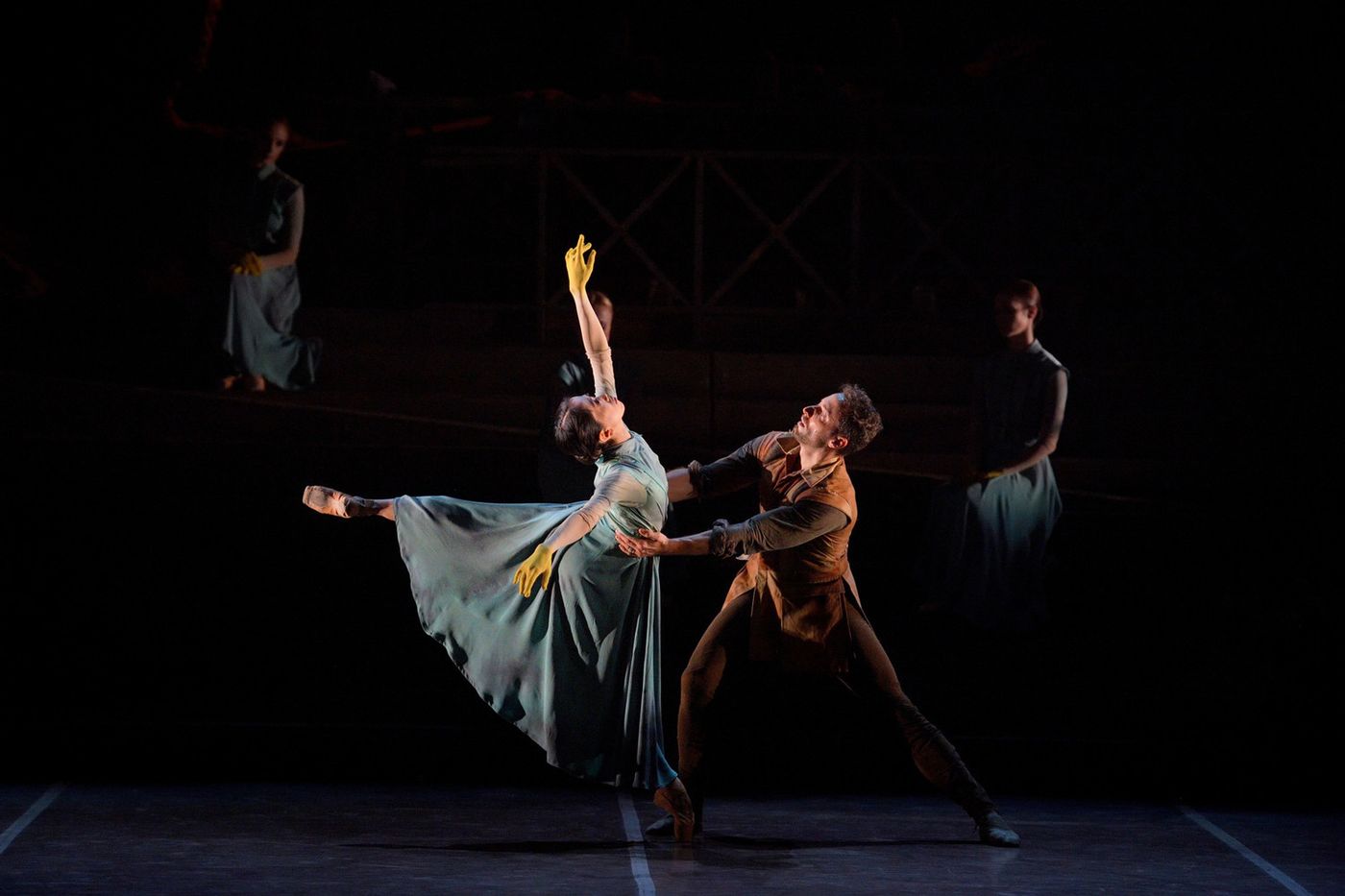Review: ENGLISH NATIONAL BALLET'S LEST WE FORGET, Sadler's Wells

![]() It can be a rarity, but every so often, perhaps once a year if you're lucky, you stumble across a work so sublime it leaves you a little stumped as to how to describe it. Unfortunate when you need to review it, however.
It can be a rarity, but every so often, perhaps once a year if you're lucky, you stumble across a work so sublime it leaves you a little stumped as to how to describe it. Unfortunate when you need to review it, however.
English National Ballet's Lest We Forget first opened in 2014, marking the 100th anniversary of the beginning of the First World War. Just two years into Tamara Rojo's tenure as Artistic Director, it was a bold statement about where the company was heading. Four years later, it sits proudly in their repertoire, a modern masterpiece to absorb, devour and shed a tear.
Liam Scarlett's No Man's Land is an emotive opening, tracking the separate roles of the men and the women and the desperate longing the war puts between them. Scarlett is aware his strengths lie within the classical vocabulary and the imagery packed into the piece responds to this; we see the women wrap their arms around the torsos of their men representative of the straps of heavy backpacks, the repetitive work done by the women in factories, and all plagued by fatigue and loneliness - to Franz Liszt's turbulent score.
The piece is characterised by three lead partnerships, the standout of which is Alina Cojocaru and Isaac Hernandez. It is preceded by some adventurous choreography for the other two couples with breathtaking lifts and jumps upon being reunited. However, for Cojocaru, her partner does not return, as she waits, lit by a single spotlight. She reaches out to touch the absent Hernandez face as he disappears before her in a heart-wrenching sequence that tracks her grief.
Cojocaru shows great sensitivity, vulnerability and care, while Hernandez's beautiful strong, lucid dancing makes for a devastating partnership. The closing moments will crack even the stoniest of hearts.
In a regular programme, Russell Maliphant's Second Breath would be much celebrated, but here is feels more like the less eventful bridge between No Man's Land and Akram Khan's Dust.
Dancers sway in the darkness, slowly rising and falling. As the action unfolds, there is repeated powerful and poignant imagery of men succumbing to their inevitable fate as they go "over the top" to the soundtrack of composer Andy Cowton. It is completed with another outstanding pas de deux, with Cojocaru this time partnering a commanding Junor Souza, who exudes power - both displaying great agility and accuracy outside of their normal classical vocabulary.
Akram Khan's Dust completes the triptych, a work that is hypnotic, dramatic and will leave you breathless by its subtle yet emotionally shattering conclusion. Khan's careful construction of the work is to be admired: it starts in silence with a lone male figure convulsing, spasming, writhing on the floor.
He is joined by the corps de ballet - and melancholic score from Jocelyn Pook - where they create a chain with their arms that undulates repeatedly before being explosively blown apart, and women perform aggressive robotic movements representative of work done in the factories.
Dust is so much more than the sum of these parts though. It's an incredibly emotive work that leaves the audience rigid with tension, eyes wide in astonishment.
Until this point, Rojo has blended into the corps, but she now emerges to partner James Streeter in an intense pas de deux that initially sees them wrestling with each other before the tempo slows and they sway and spin, before Streeter disappears "over the top". It's rare to see such attack as Rojo demonstrates here; she dances furiously, with almost too much conviction, intensifying the experience further.
Whether it's to weep or to admire the skill and artistry within these three works, to witness Lest We Forget to is to experience something unique in dance. It will leave you breathless, moved and a little bit broken, and will stay with you for a long time after.
Lest We Forget continues at Sadler's Wells until 29 September
Photo: Laurent Liotardo
Reader Reviews
Videos

